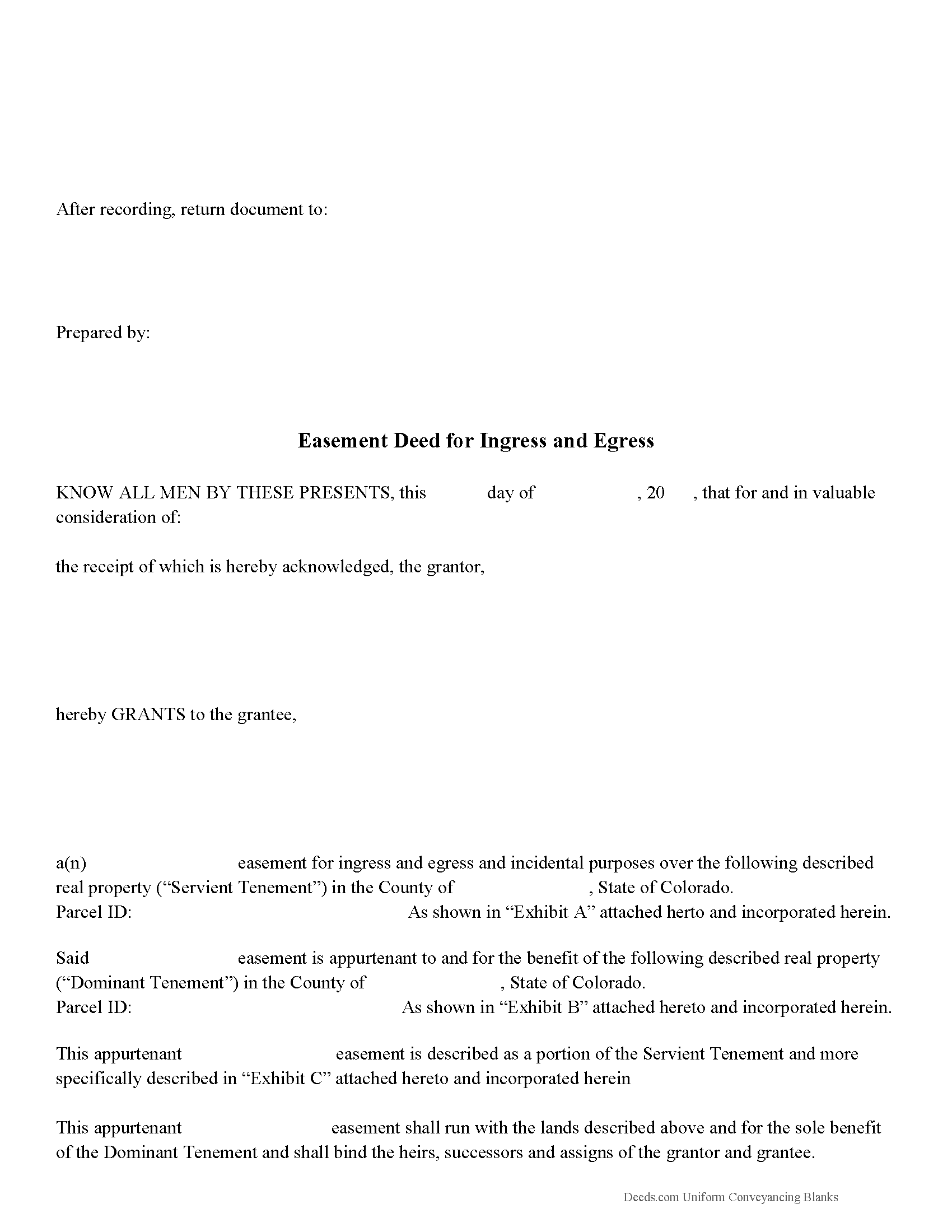Download Colorado Easement Deed Legal Forms

Colorado Easement Deed Overview

An easement is a right or agreement in writing to use all or part of the real property of another person for a specific purpose. It is considered to be an interest in real property, but is not an ownership or possessory interest. An owner of real property in Colorado may create an easement by a written document, which can be in the form of a deed, easement agreement, or other document including the language of a conveyance or grant. An easement must be classified as affirmative or negative. The deed or other instrument creating the easement must follow the normal rules that apply to a conveyance of land in Colorado.
Colorado also has a conservation easement, which is a legal agreement between a landowner and a qualified conservation organization or government agency that permanently limits a property's uses to protect its conservation values. Conservation easements can protect the land while still leaving it in private ownership (38-30.5-102). Solar easements can also be created in this state, and such a right can be stated in any deed, will, or other instrument executed by or on behalf of any owner of land or sky space (38-32.5-100.3). Both conservation easements and solar easements are subject to the same conveyancing recording requirements as other easements; however, a solar easement cannot be acquired by prescription.
The owner of the dominant tenement (the granting party) must sign an easement deed created in this state, and must have his or her signature acknowledged. Acknowledgements must be in accordance with the provisions of 38-35-101 of the Colorado Revised Statutes, which state that no officer who is authorized to take acknowledgments of deeds or other instruments of conveyance should take or certify such acknowledgements unless the person making the same is personally known to such officer to be the person he represents himself to be in the deed or is proved to be such person by at least one credible person known to such officer. However, it is not necessary to sate such fact in the certificate of acknowledgment attached to the easement.
To impart notice of the interest in real property, the easement must be recorded in the office of the clerk and recorder in the county where the property is located. Colorado has a race notice recording act. An unrecorded easement deed is not valid against any person with any kind of rights in or to such real property who records first and those holding rights under such person, except between the parties to the easement and those having notice of it prior to the acquisition of such rights (38-35-109).
(Colorado Easement Deed Package includes form, guidelines, and completed example)